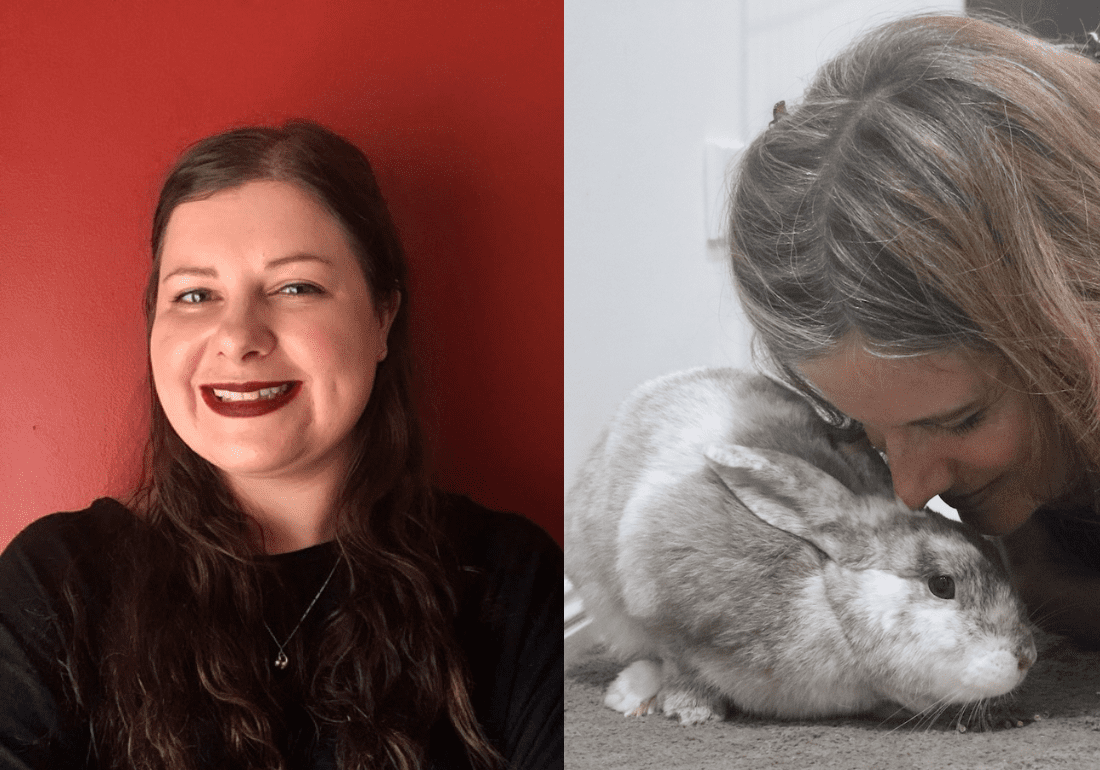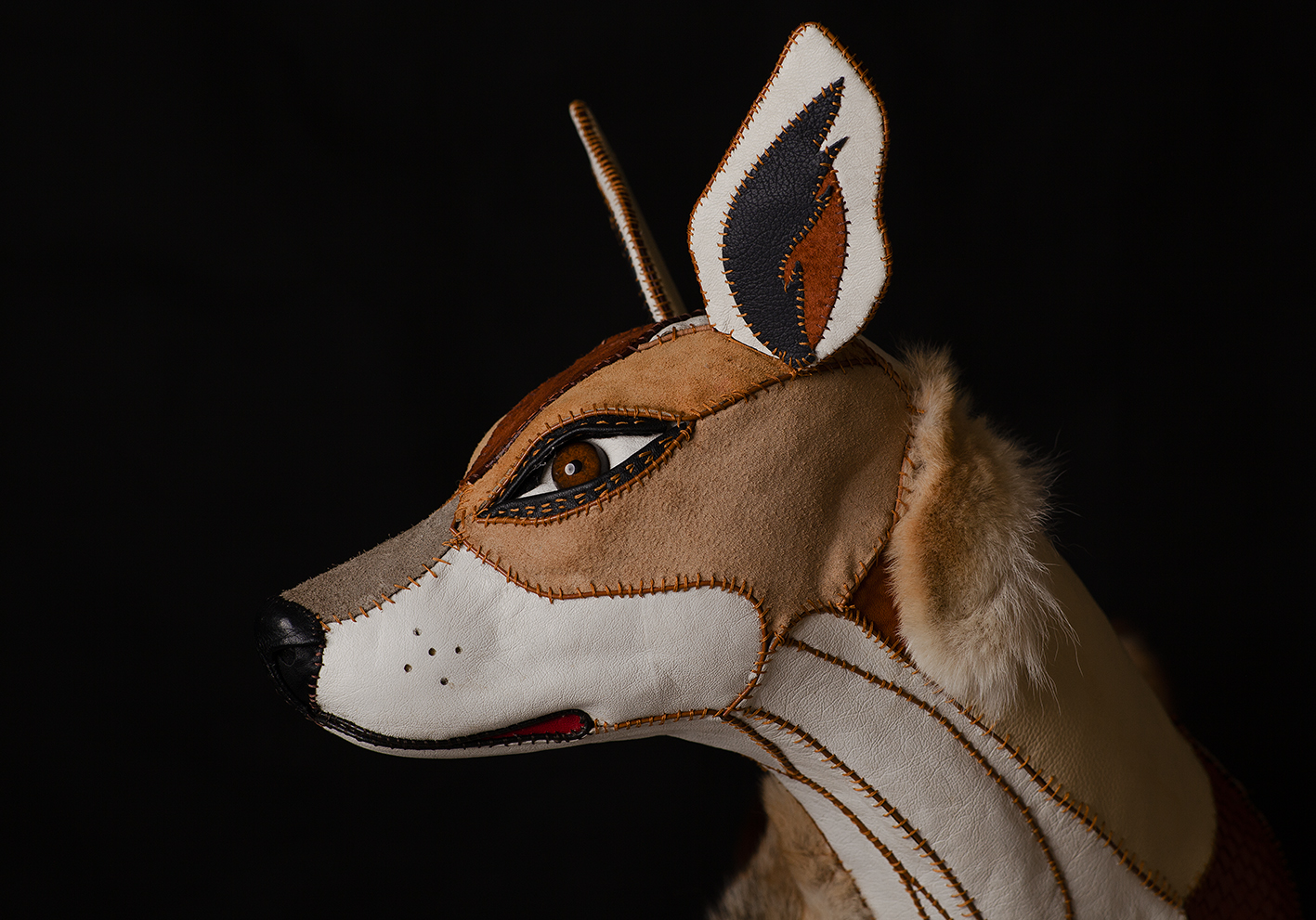Ondine Sherman talks to AASA members Josephine Brown and Zoei Sutton about their latest publication
Browne, Josephine and Sutton, Zoei (eds) Human-Animal Relationships in Times of Pandemic and Climate Crises: Multispecies Sociology for the New Normal (London: Routledge, 2025)
What drew you to animal studies?
Josephine Brown (JB): I grew up in a family where long rambles were the norm, as was living off organic vegetables from the garden, even though it was mostly suburban Melbourne, and time in southern England. These activities created an alertness to other animals as we saw them in the bush and fields, or engaged daily with practices responding to how to live with their interest in food we were growing to eat. But it all intensified for me when I was a teen, and I met a rabbit, who was ‘gifted’ to me. Rabbits are very little valued, especially in Australia, and living with Ben for a decade alerted me in much deeper ways to the treatment of other animals in laboratories, in hierarchies, in food and clothing systems.
Ben was vegan, and he helped me reconsider my own eating practices (actually a very common thing for those in the rabbit communities – to become vegetarian or vegan under the influence of these companions). All this led to research at Monash University (where I was initially laughed at) on disenfranchised grief and companion animal loss. At the end of that, my supervisor said I couldn’t walk away from the huge community need the work had uncovered, so we founded a disenfranchised grief service for humans after companion animal loss, the first in Australia.
When I did that, in the mid-90s, I had no idea there was an academic movement for animals, as I was working in Human Services, while doing activism outside work. When I returned to postgrad work – in literary studies, and later sociology – and found the Animal Studies field, I was ecstatic; it was very validating and encouraging of the work I’d been doing in various ways since childhood, including rescue and activism. I’m still ecstatic about it, it’s wonderful that we have this community where we visibilise care and reflection for animal others who are so deeply enmeshed in all our lives.
Zoei Sutton (ZS):
I think like a lot of animal studies scholars I had always been drawn to nonhuman animals and knew enough to stop eating them but perhaps hadn’t thought a lot about the structural roots of exploitation. After working in a bunch of companion animal-related jobs I felt like there was something going on in those entanglements that didn’t feel good – a lot of “loved” animals seemed to be living very constrained, quite neglected lives and this was generally accepted in society. I didn’t see a lot of discussion of this, certainly not any connections being made between these animals’ experiences and other exploited animals in more lethal industries.
When I found sociology and animal studies it gave me the language and the thinking tools to start identifying and analysing the power relations between humans and other animals and I never looked back!
Describe how your scholarship developed, and any future plans in this area …
ZS: I guess the main strand of my work has always been centred on companion animals – how they fit into systems of exploitation, what it looks like to critically examine power relations in these entanglements and how their marginalisation is often entwined with human inequality. I also have (too many!) side projects looking at other manifestations of multispecies inequality and how social sciences/natural sciences and creative arts might collaborate to reimagine multispecies worlds. I have a Critical Pet Studies Book due for completion mid-2025 so keep an eye out for that!
How would you broadly describe your work and interests?
JB: In my former career, I was a Narrative Therapist. This work drew on philosophy, applying a sociocultural approach to critiquing structural issues and considering power to assist individuals and groups to construct more hopeful futures where agency is understood as an embodied, contingent social experience. It’s exciting work, because unlike a lot of therapies, which come out of the US and Europe, Narrative Therapy emerged from Australia and New Zealand.
From the outset, it was co-constructed with Aboriginal and Torres Strait Islander and Maori peoples, recognising the life-changing power of stories that articulate structural problems – rather than individualise through often determinative labels – and it continues to develop organically around the world.
This interest in social and cultural critiques of power, and the shifting of bodily agency within that – for humans and other animals – continues for me in interrogating stories we tell ourselves on every level, such as Western dominating narratives of progress, colonialism, neoliberalism, climate crises or anthropocentrism.
My PhD is in gender, and two of my theses focus on masculinities, so I bring these things together to critique power in story constructions, focused on animals and gender, and consider the consequences of that materially, in literature and film primarily, drawing on decolonising work and practice as a key site of resistance and increasing justice. The interest in social justice and critiques of power meant that sociology was a good way to place the approaches of Narrative Therapy within another discipline for me, so I brought this focus into my PhD as well. More recently, my work is also drawing on utopian studies – imagining futures along speculative spectrums of warnings or possibilities, as well as the contingent construction of utopias relative to power; in this, critical animal studies and decolonial perspectives are vital approaches for increasing our comprehension of current crises and possible ways forward.
This utopian work seems a logical extension of the past thirty years of activism and thinking in these areas. I’m currently working on articles on masculinities in the anthropocene, and – with colleagues from AASA – McKay’s brilliant recent collection, Gunflower (2023).
ZS: I’m interested in research that uncovers and analyses multispecies power inequality in everyday life. I’m primarily a qualitative researcher so I love getting into the texture of lived experiences, trying to think about how we might create space for nonhuman animals in research so that they are considered without further exploiting them with our methods (easier said than done).
We have so much wonderful, critical, theoretical work in Animal Studies that can inform our understandings of the world, I am interested in contributing to the empirical body of knowledge to see how these apply to the lived experiences of those in multispecies entanglements (with “pets”, “pests” etc) and the discourses, policies and practices that support exploitative treatment of other animals.
Tell us about your new book, Human-Animal Relationships in Times of Pandemic and Climate Crisis, and how it came about.
JB: This collection began at the AASA Christchurch conference in 2019 – my first AASA conference – when I met Zoei Sutton, who was completing her PhD in sociology and animals. In sociology, there is exciting work in critical animal studies, but the broader discipline has been slow to respond to the Animal Turn, for a whole range of reasons, despite our daily and significant involvement with other animals in the social world. Sociology has incredible theoretical tools for extending our critiques of human-animal relations, as it deeply invested in critiquing power, attending to history for the purpose of imagining better futures.
So when Covid hit the following year, it seemed like it was our moment to really bring in the animal perspective and thoroughly critique the connections of pandemics to a whole range of dominating, humancentric relations in the social world.
Through the Australian Sociological Association, where Zoei had established a Sociology and Animals group, I coordinated a panel in November of 2000 on the New Normal, and later received an email from the Routledge Sociology Editor, expressing interest in our research and inviting us to submit a proposal. We’d also suffered, not only pandemic, but through the Black Summer bushfires, and – living in the Northern Rivers – my community were then flooded twice in rapid succession, so in the proposal, we extended our approach to include links to the climate crises, to be as comprehensive as possible in terms of the sociological world.
The book contains a group of leading scholars in the field, who have developed theories and language to critique human-animal relations, and it’s been a huge privilege to work with them. It addresses animals in everyday life, activism and food, and speciesist relations, so it covers a really broad range of issues arising from both the pandemic and the climate crisis, demonstrating the ways our problematic relationships with animals are implicated – but currently insufficiently addressed, or outright ignored – in the ‘wicked problems’ currently faced globally, and – addressing asymmetrical power – very often imposed by the few on the many. It also looks at how things have changed or are changing, and offers hopeful considerations of ways forward.
ZS: This book really came out of a panel Josephine organised at the Australian Sociological Association’s annual conference with Gavin Smith, Dinesh Wadiwel and myself posing different provocations around what a multispecies sociology lens might offer in terms of understanding the global pandemic and impending ’new normal’. Routledge felt like it would make a great edited collection and we wholeheartedly agreed! The result is a collection of chapters from our thoughtful and critical multispecies sociology colleagues who highlight the impacts of pandemic and climate crisis on everyday life, activism and the social world more broadly, and how multispecies sociology might help us to live ‘less badly’ (to use Cudworth & Hobden’s phrasing) with nonhuman others.



